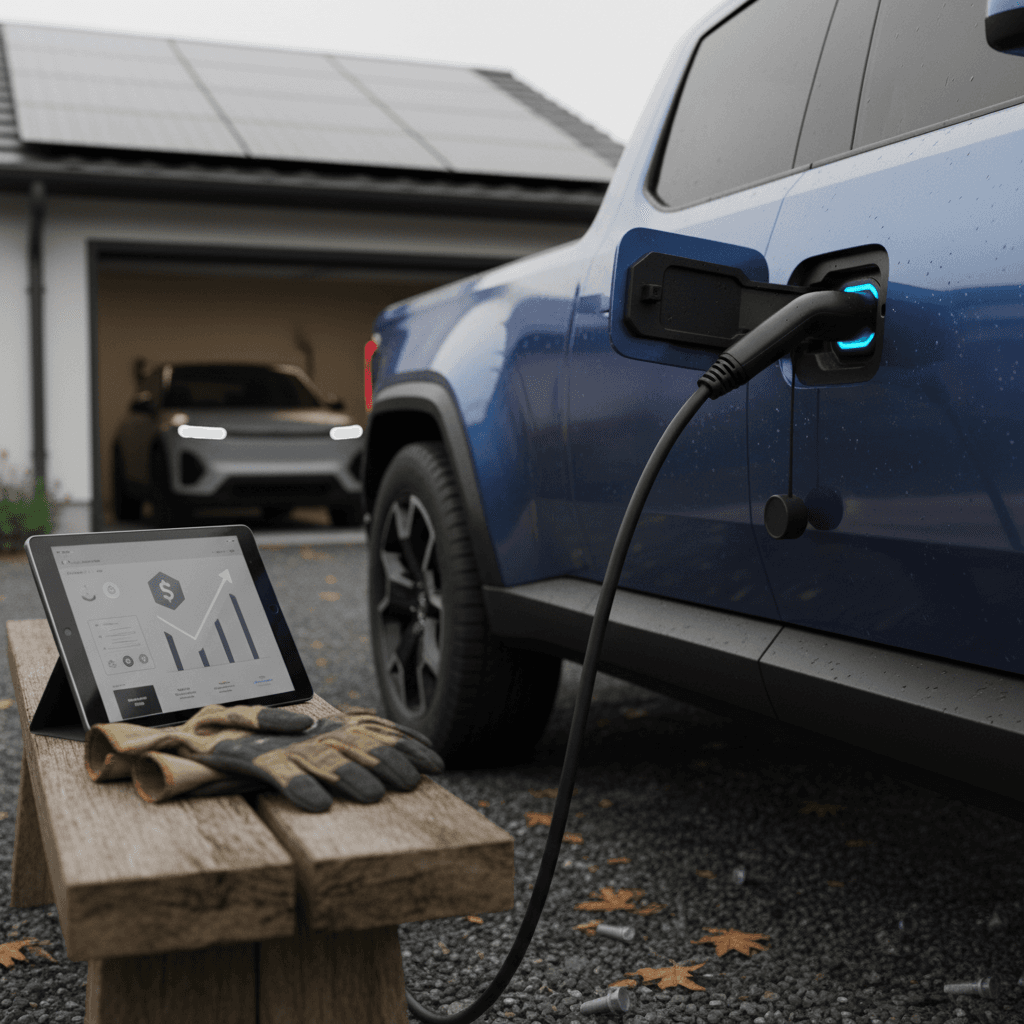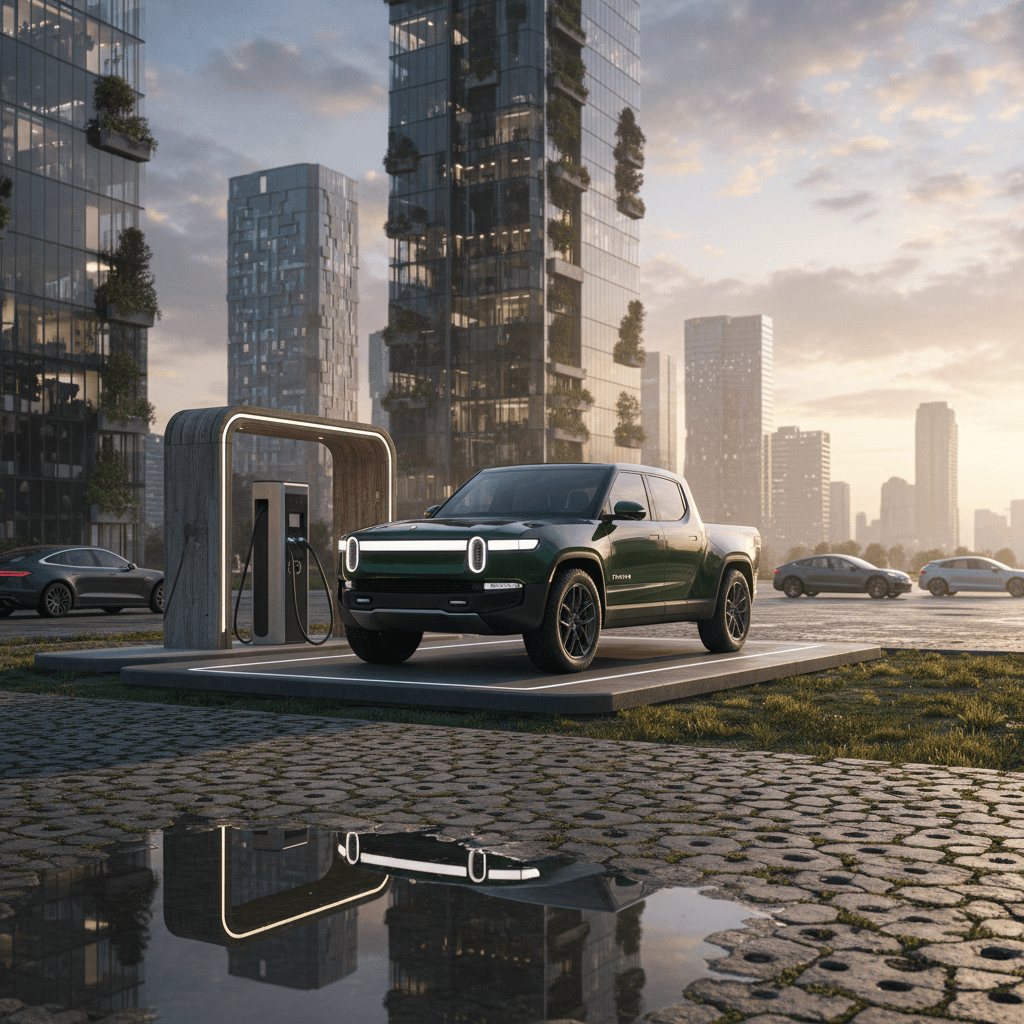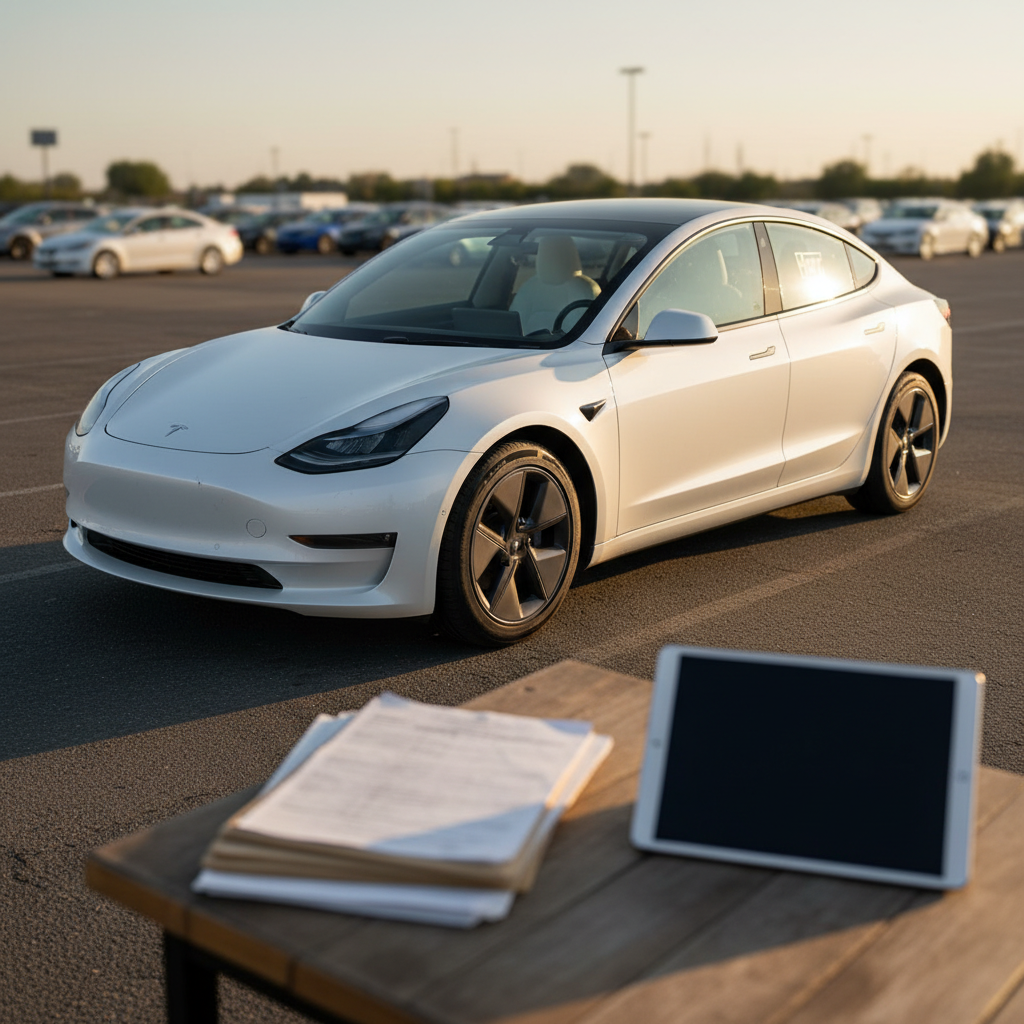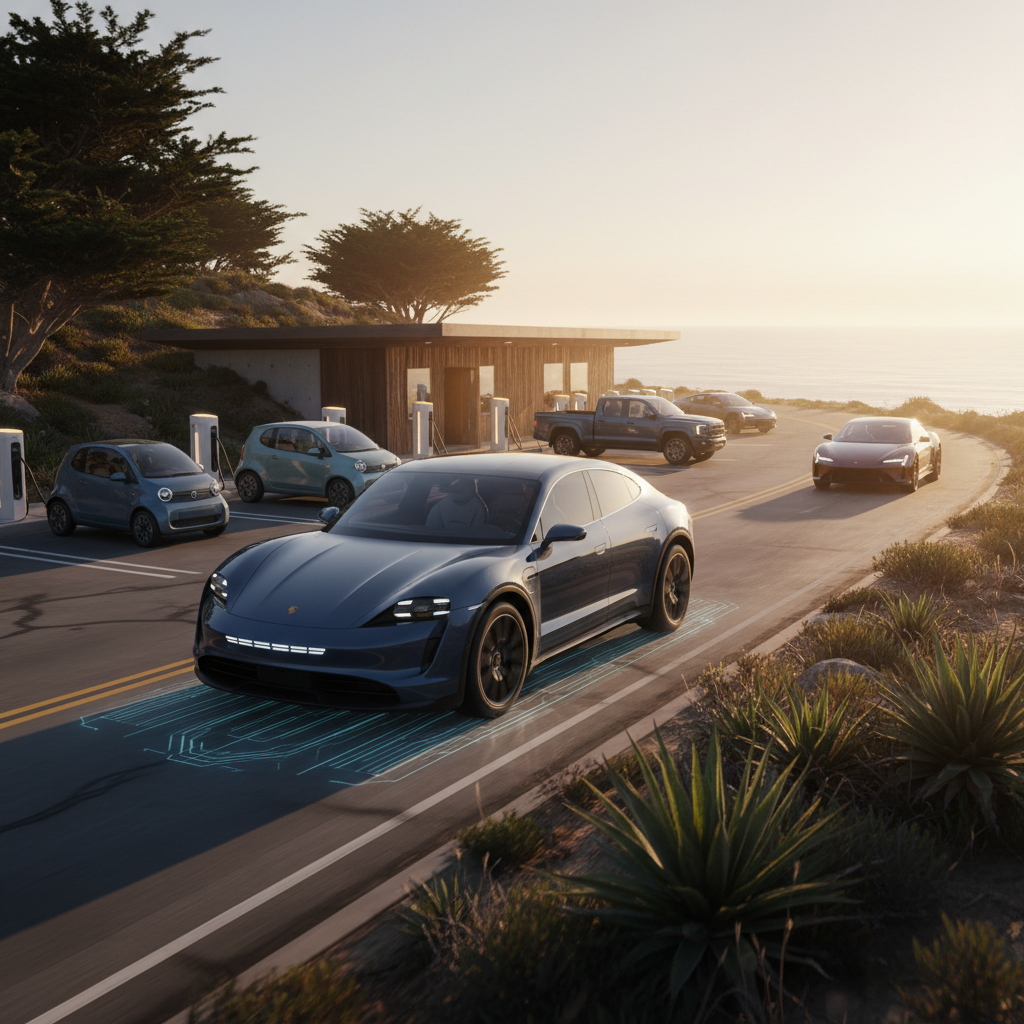When you shop for an electric vehicle, you’re not just choosing a model, you’re choosing an EV brand. That decision shapes everything from driving experience and charging convenience to resale value and how easy the car is to live with in year eight, not just year one. In 2025, Tesla no longer owns the EV world; brands like BYD, Geely, Hyundai, Kia, Ford, GM and Volkswagen have all carved out serious space. The question is: which EV brand actually fits your life and your budget?
Quick context: The EV brand landscape in 2025

Why the EV brand you choose matters
With gasoline cars, brand loyalty has been built over decades. With EVs, the playbook is still being written. Choosing an EV brand matters because the brand determines not just styling and badge prestige, but also battery engineering, software support, charging options and long-term costs.
Four ways EV brand shapes your ownership experience
Think beyond the logo on the grille.
Battery & range
Different brands use different battery chemistries and thermal management strategies. That affects real-world range, charging speed and long-term degradation.
Charging access
Some brands are deeply integrated with fast-charging networks like Tesla Supercharger and major third-party providers. Others still feel patchy away from home.
Software & updates
Over-the-air updates can add features, fix bugs and improve efficiency. Not every brand ships updates at the same pace, or communicates them clearly.
Resale & incentives
Brand perception influences used values, insurance, and even how lenders view the car. Incentive strategies also vary widely by automaker.
Don’t chase brand hype alone
The global EV brand leaderboard in 2025
Zoom out to the global market and a different pecking order emerges. Chinese automakers now dominate worldwide EV volume, while Tesla and a handful of Western brands play defense and pick their battles region by region.
Global EV deliveries by group, Jan–Aug 2025 (all-electric + plug‑in)
Global leaders vs. U.S. reality
Top EV brands US shoppers actually see on lots
On U.S. roads, Tesla remains the most visible EV brand, but the story is shifting quickly. Tesla’s U.S. EV share has fallen from around 80% a few years ago to the low‑40s, as Hyundai, Kia, Ford, GM, Volkswagen and others scale up real EV volume, not just compliance cars. For a used EV shopper, that means more variety, and more pricing pressure in your favor.
Major EV brands for U.S. buyers in 2025
These are the brands you’ll most often encounter when shopping new or used EVs in the U.S.
| Brand | Core EV Strengths | Common Body Styles | Typical Price Position (New) |
|---|---|---|---|
| Tesla | Efficient powertrains, large fast-charging network, strong software features | Sedans, crossovers, pickup | Mid to upper mainstream; limited low-cost options |
| Hyundai / Kia | Modern designs, strong range and efficiency, fast charging, long warranties | Crossovers, hatchbacks, sedans | Competitive mainstream pricing with aggressive leasing |
| Ford | Familiar nameplates (Mustang, F‑150), broad dealer network, fleet support | Crossovers, pickup, vans | Varies from mainstream to near‑luxury depending on trim |
| GM (Chevrolet, Cadillac, GMC) | Ultium platform, nationwide dealers, expanding line-up (Equinox EV, Blazer EV, Lyriq) | Crossovers, SUVs, pickups | Mainstream Chevy pricing; Cadillac positioned as premium |
| Volkswagen / Audi | European driving feel, solid build quality, growing charging partnerships | Crossovers, hatchbacks, SUVs | From mainstream (VW) to premium (Audi) |
| Nissan | Early mover with Leaf, now Ariya; strong lease deals historically | Hatchback, crossover | Budget to lower-mid mainstream |
| Toyota / Lexus | Emphasis on hybrids, slowly ramping BEVs; reputation for durability | Crossovers, SUVs | Conservative but generally value‑oriented pricing |
| Volvo / Polestar | Design‑forward interiors, safety features, subscription-style offers | Crossovers, sedans | Near‑luxury pricing with frequent incentives |
Every brand here has multiple EVs on U.S. roads and meaningful dealer or direct‑sales presence.
Good news for used EV shoppers
EV brand reputation, reliability and recalls
Brand perception in EVs is changing quickly. Tesla, for instance, still tops many shopping lists but has seen its consideration scores soften as buyers compare build quality and customer service to familiar legacy brands. Meanwhile, Hyundai, Kia and some European marques are earning reputations for solid engineering and straightforward ownership.
What shoppers think
- Tesla is widely seen as the tech leader, with excellent range and fast charging.
- Toyota and Honda have long reputations for reliability, even if their BEV lineups are smaller.
- German brands (VW, BMW, Mercedes) project premium image and driving dynamics.
- U.S. brands like Ford and GM are associated with trucks, SUVs and accessible service networks.
How EV reality can differ
- Some software‑heavy brands ship features early but need frequent bug‑fix updates.
- Thermal management strategies vary; a brand that builds great gas engines may still be learning battery management.
- Recall rates for early EV generations have been high across many brands as they sort out first‑generation hardware.
- Dealer familiarity with EV service still lags in some mainstream brands, especially outside major metros.
Use brand reputation as a starting point, not a verdict
“We’re moving from an era where you bought a brand for its reputation with engines and transmissions to one where you’re buying its expertise with batteries, software and charging partnerships.”
How charging networks differ by EV brand
Charging is where EV brands can feel the most different day‑to‑day. Even if two models share similar range on paper, your experience on a road trip will depend heavily on how your brand plugs into the charging ecosystem, literally and figuratively.
EV brands and their typical fast‑charging experience
Connector standards and network access are converging, but we’re not fully there yet.
Tesla and NACS-first brands
Tesla built the Supercharger network, and many new EVs are adopting its NACS connector. Newer Hyundai, Kia, Ford and GM models are rolling out with native NACS ports or adapters, giving drivers access to thousands of high‑uptime fast chargers.
CCS-based legacy brands
Many 2023–2025 EVs from VW, BMW, Mercedes, Nissan and early Ford/GM models rely on the CCS standard. You’ll use networks like Electrify America, EVgo and regional providers. Coverage is improving, but uptime can vary by region.
Brand apps & route planners
Most EV brands now bundle route planning and payment into their apps. Tesla still leads here, but Hyundai/Kia, Ford and others have made big strides, integrating multiple networks into a single interface.
Watch connector type on used EVs
EV brand, depreciation and resale value
Used EV values have come under heavy pressure in the last two years. Generous incentives on new EVs, rapid technology change and lingering consumer uncertainty around batteries have pushed late‑model EVs to retain a much smaller share of their original price than comparable gas vehicles.
How EV brand influences the used market
Leverage depreciation, don’t fear it
How to choose the right EV brand for you
The “best” EV brand depends less on internet rankings and more on your daily reality: where you charge, how far you drive, who will service the car and how long you plan to keep it. Use brand reputation as a filter, then map each brand to your use case.
If you prioritize road trips
- Favor brands with strong fast‑charging access, Tesla today, and NACS‑adopting brands like Hyundai, Kia, Ford and GM as their NACS vehicles roll out.
- Look for 200+ kW peak charging capability and solid real‑world range reviews, not just brochure numbers.
- Check brand apps for route planning that automatically includes charging stops and preconditions the battery.
If you mostly commute locally
- Almost any major EV brand can work if you have reliable home or workplace charging.
- Focus on comfort, safety tech and total cost of ownership; a used mainstream‑brand EV can be an excellent value.
- Prioritize brands with straightforward dealer service or mobile support in your area.
EV brand “archetypes” in today’s market
Think in categories, then zoom into specific models.
Tech-forward disruptors
Examples: Tesla, Polestar
Best if you want cutting‑edge software, minimalist cabins and frequent updates, and you’re comfortable living through occasional software quirks.
Conservative quality players
Examples: Toyota, Honda (as they expand BEVs), some German brands
Appeal if you value perceived long‑term durability, traditional controls and dealer support more than dazzling tech.
Value-focused mainstreamers
Examples: Hyundai, Kia, Chevrolet, Ford
Ideal if you want a solid EV with good range and features at a price that undercuts many premium‑branded competitors.
Checklist: Comparing EV brands when buying used
When you’re cross‑shopping used EVs from different brands, it’s easy to get lost in trim names and screen sizes. Use this checklist to keep the fundamentals front and center.
Brand comparison checklist for used EVs
1. Battery warranty and coverage
Confirm how many years and miles of battery coverage remain for each brand. Some offer 8 years/100,000 miles; others go longer or shorter. Make sure the warranty is transferable to you.
2. Verified battery health, not just mileage
Two EVs from the same brand can age very differently depending on climate and charging habits. With Recharged, every car’s <strong>Recharged Score Report</strong> includes battery health diagnostics so you’re not guessing.
3. Charging connector and network access
Check whether the car uses CCS, NACS or another standard, and whether the brand offers official adapters. Make sure there are fast chargers, of the right type, on your typical routes.
4. Software support and update track record
Search for how often the brand has issued over‑the‑air updates and how owners feel about them. A brand that updates regularly is more likely to fix issues and add features over time.
5. Local service and parts support
Even a strong EV brand can be a headache if the nearest EV‑trained service center is hours away. Check local dealer or service coverage and ask about EV loaner policies.
6. Resale trends for that brand
Look at current asking prices for 3‑ to 5‑year‑old EVs from the same brand. That gives you a real‑world clue about future depreciation if you plan to sell or trade in later.

How Recharged can help you compare brands
EV brand FAQ
Common questions about EV brands
Bottom line: Brand is a shortcut, not the full story
EV brands matter because they shape your charging experience, software updates, warranty support and resale value. But once you’ve narrowed to a shortlist of solid brands, the real differentiators become specific models, battery condition and how the car was used. That’s especially true in the used market, where depreciation has created opportunities across many badges, not just one or two household names.
If you’re ready to shop, use brand as your starting filter, then dig into the details of each vehicle. At Recharged, we make that easier with verified battery health, transparent pricing and EV‑specialist support, so you can feel confident whether you pick a Tesla, Hyundai, Chevy, Ford or something less obvious that happens to be the right EV for you.




